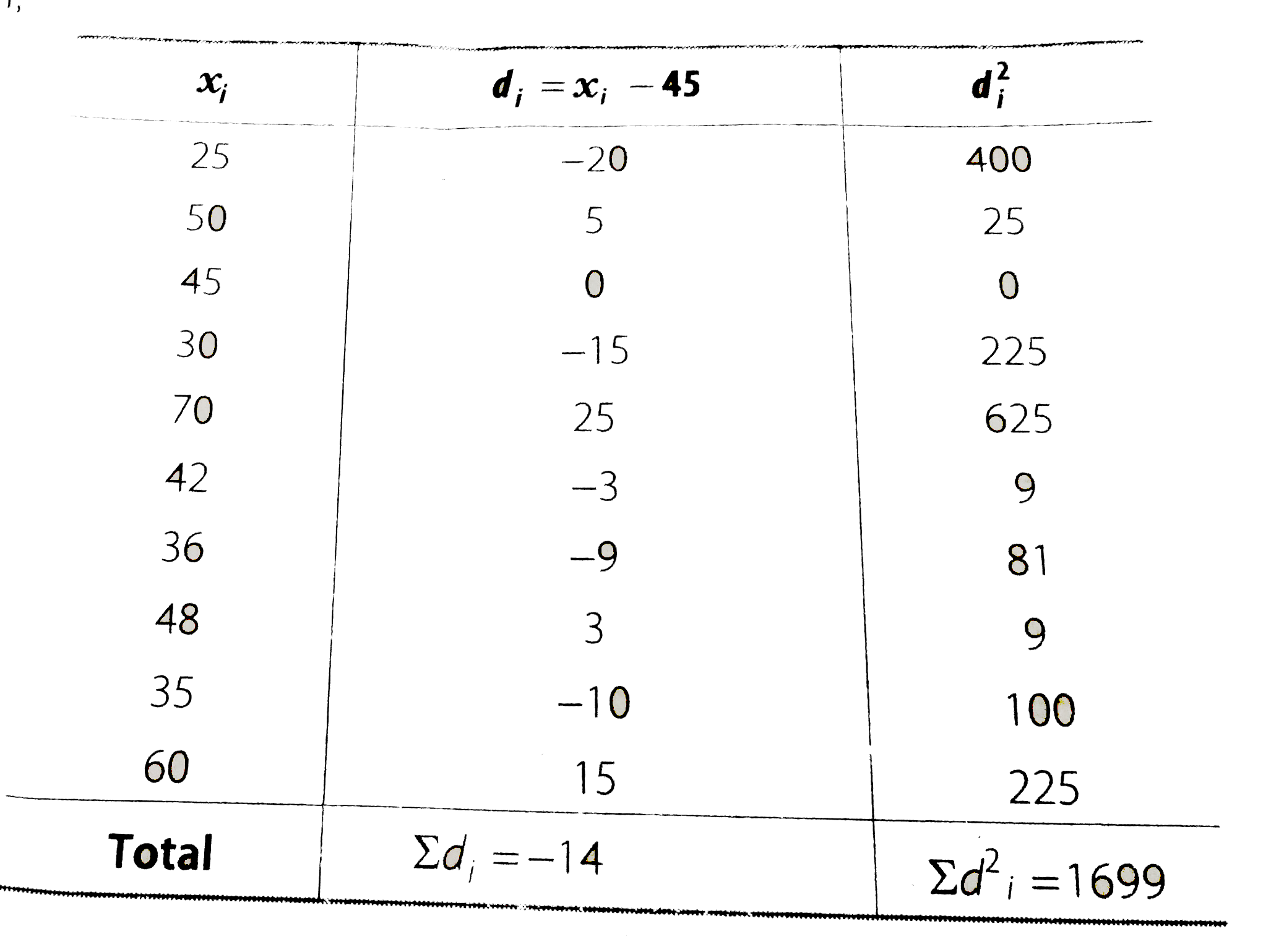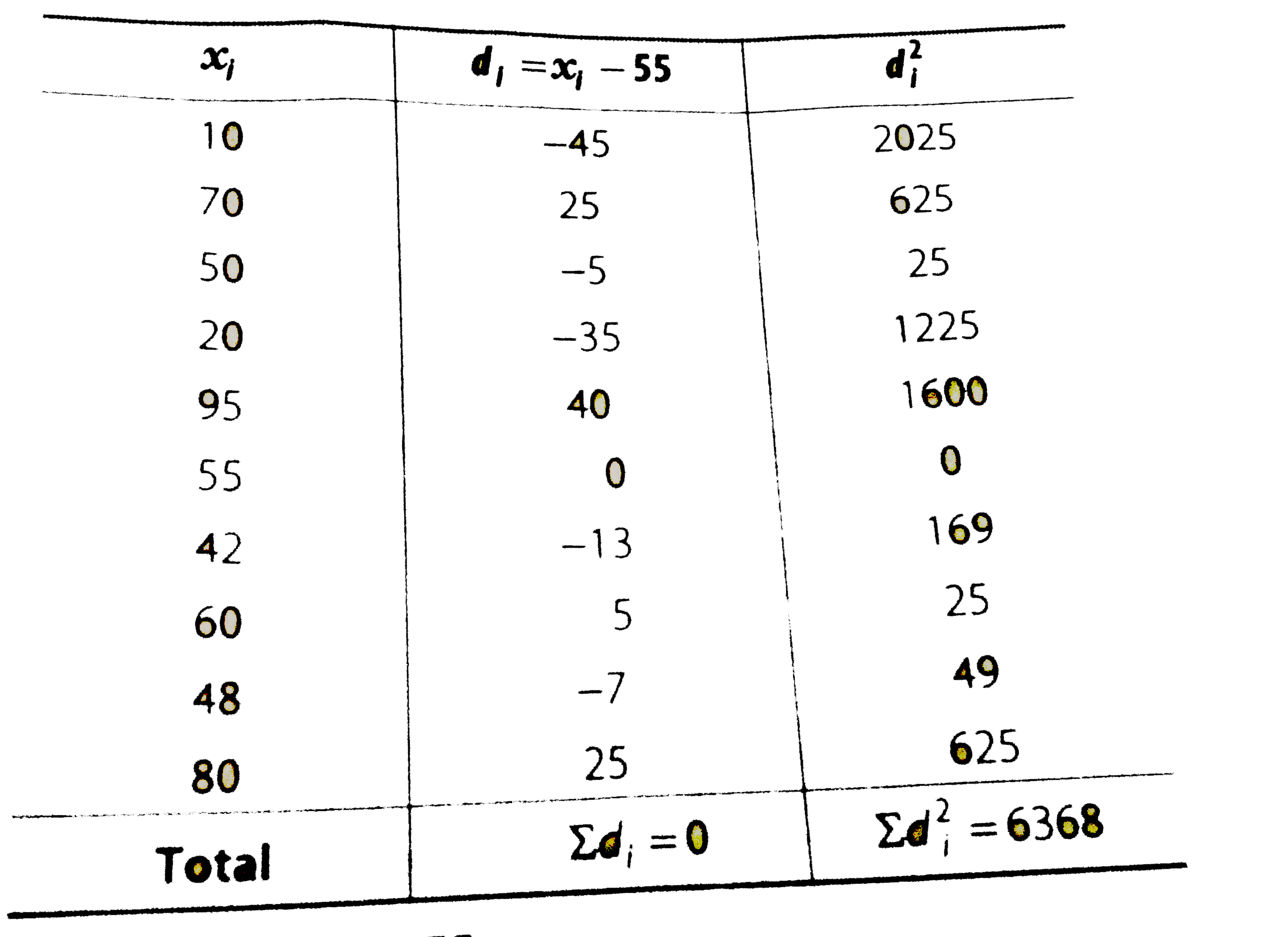InterviewSolution
This section includes InterviewSolutions, each offering curated multiple-choice questions to sharpen your knowledge and support exam preparation. Choose a topic below to get started.
| 3301. |
Which of the followingstatementis true : Statement -I : InDelta ABC if r_1 = s" then "DeltaABCis Equilateral. Statement -II : InDelta ABCr= ( s-b) cot ((C )/(2)) |
|
Answer» Only I |
|
| 3302. |
If tan(theta/2)=cosec theta-sintheta then the numerical balue of "cos"^(2)theta/2= |
|
Answer» `(sqrt5-1)/4` |
|
| 3303. |
If siny=xsin(a+y), then prove that (dy)/(dx)=(sin^(2)(a+y))/sina, a ne npi. |
|
Answer» |
|
| 3304. |
A sector OABO of central angle theta is constructed in a circle with centre O and of radius 6. The radius of the circle that is circumscribed about the triangle OAB, is |
|
Answer» `6 "COS" (THETA)/(2)` |
|
| 3305. |
There are 50 apple trees in an orchard Each tree produces 800 apples . Foreach additional tree planted in the orchard , the output per additional tree drops by 10 apples . Number of trees that should be be added to the existing orchard for maximising the output of the trees , is |
|
Answer» 5 |
|
| 3306. |
Following are the marks obtained ,out of 100, by two student Ravi and Hashina in 10 tests Who is more intellogent and who is more consistent ? |
Answer»  `sigma=sqrt((Sigmad^(2)i)/N-((Sigmad_(i))/n)^(2))` ltbr gt `=sqrt((1699)/10-((-14)/10)^(2))=sqrt(169.9-0.0196)` `=sqrt(169.88)=13.03` Now`barx=A+(Sigmad_(i))/(Sigmaf_(i))=45-14/10=43.6`  `thereforeMean = 55` `becausesigma =sqrt(6368)/(10)=sqrt(636.8)=25.2` For Ravi`CV=(sigma)/(x)xx100=(13.03)/(43.6)xx100=29.88` For HASHINA`CV=(sigma )/(x)xx100=(25.5)/(55)xx100=45.89` Hence ,HASINA is more consistent and inlligent . |
|
| 3307. |
If 1 + cos alpha + cos^(2) alpha + ….oo= 2- sqrt2 then find the value of alpha. (0 lt alpha lt pi) |
|
Answer» |
|
| 3308. |
Find the term independent of 'x', x ne 0 in the expansion of(3 - (x^3)/(6) )^7 |
|
Answer» |
|
| 3309. |
Compute the following limits : Lt_(xto1)((2x-1)(sqrtx-1))/(2x^(2)+x-3) |
|
Answer» |
|
| 3310. |
Let bar(a),bar(b) be two non-collinear unit vectors, if bar(alpha) = bar(a) -(bar(a).bar(b))bar(b) and bar(beta) = bar(a) xx bar(b), then show that |bar(beta)| = |bar(alpha)|. |
|
Answer» |
|
| 3311. |
Let f be a function defined by f:xto5x^(2)+2,x in R (i) Express f as a set of ordered pairs using set builder notation. (ii) Is f a one-one function (iii) Find the image of 3 under f (iv) Find x such that f(x)=2 |
|
Answer» |
|
| 3312. |
The mean of 200 items is 48 and their standard deviation is 3. Find the sum of squares of all items. |
|
Answer» |
|
| 3313. |
For the given relation R on a set S, determine which are equivalence relations: (a) (i) S is the set of all rational number a R b iff a= b (ii) S is the set of all real numbers iff: (I) |a| = |b| (II) a ge b (b) (i) S is the set of all traingles in a plane a R b iff a is congrunet to b. (ii) S is the set of all triangles in a place a R b iff a and b have equal perimeters. (iii) S is the set of all people in India today, a R b iff a and b have same mother-tongue. (iv) S is the of all people in the world today aRb iff a and b have same mother-tongue. (v) S is the set of all people in the world today a R b iff a lives within 75 kilometres of b. |
|
Answer» |
|
| 3314. |
The locus of a point which is collinear with the points (3, 4) and (-4, 3) is |
|
Answer» |
|
| 3315. |
An equation of a line whose segment between the coordinates axes is divided by the point ((1)/(2),(1)/(3)) in the ratio 2:3 is |
|
Answer» `6x+9y=5` |
|
| 3316. |
Write and simplify the coefficient of the term independent of 'x' in theexpansion of (x^3 - 1/x)^12 , x ne 0 |
|
Answer» |
|
| 3317. |
Find root(3)(65) |
|
Answer» |
|
| 3318. |
Let the curve C be the mirror image of the variable point (t^2,2t) with respect to the line x+y+4 =0. If A and B are the point of intersection of C with the line y=-5, then the distance between A and B is |
|
Answer» 8 |
|
| 3319. |
If "Tan"^(-1)1/(1+2x)+"Tan"^(-1)1/(4x+1)" = Tan"^(-1)2/(x^(2)) then x(x!=0)= |
|
Answer» `1` |
|
| 3320. |
Choose the most appropriate answer from those given in bracket lim_(xrarr0)(sin ax)/(x cos bx) = ……… |
|
Answer» 0 |
|
| 3321. |
The side of a square increases at the rate of lem per second. Find the rate at which the area of the square increases wen the sideris 15 cm. Also find the rite at which the perimeter increases |
|
Answer» |
|
| 3322. |
Ifcos alpha + cos beta =0 = sin alpha + sin beta " then " cos (alpha - beta )= |
|
Answer» 0 |
|
| 3323. |
Find the coefficient of 1/(x^(17)) in the expansion (x^(4)-1/(x^(3)))^(15) |
|
Answer» |
|
| 3324. |
Differentiate the following functions w.r.t. x. (2x +3) (x^3 - x+ 2) |
|
Answer» |
|
| 3325. |
Find the mean deviation from the mean for following marks: 37, 48, 50, 23, 47, 58, 29, 31, 40. |
|
Answer» |
|
| 3326. |
Write the following interval in set builder form. (0, 10) |
|
Answer» |
|
| 3327. |
If costheta = cosalpha .cosbetathen tan""(theta+alpha)/2tan""(theta-alpha)/2is equal to |
|
Answer» `TAN^(2)(alpha//2)` |
|
| 3328. |
Expand (x+(1)/(x) )^(6). ( x ne 0) |
|
Answer» |
|
| 3329. |
If x= sin alpha + sin betga , y = cos alpha + cos beta tan alpha + tan beta = |
|
Answer» `(8 XY)/( 2 (y ^(2) - X ^(2)) + ( x ^(2) + y ^(2)) (x ^(2) + y ^(2) - 2))` |
|
| 3330. |
Differentiate the following functions: sqrt( x ) - (1)/( sqrt x) , x ne 0 |
|
Answer» |
|
| 3331. |
There are five routes for a journey from stations . A to B . In how many different ways can a man go from A to B and return , if for returning. the same route is taken |
|
Answer» |
|
| 3332. |
There are five routes for a journey from stations . A to B . In how many different ways can a man go from A to B and return , if for returning. the same route is not taken? |
|
Answer» |
|
| 3333. |
There are five routes for a journey from stations . A to B . In how many different ways can a man go from A to B and return , if for returning. any of the routes is taken |
|
Answer» |
|
| 3334. |
If two sides of the quadrilateral are along the lines x+2y+3=0 and x+2y=5. Find its area. |
|
Answer» |
|
| 3336. |
Show that |(a,b,c),(b,c,a),(c,a,b)|^(2)=|(c^(2)-a^(2)-b^(2),(ac-ab-bc),(bc-ab-ca),(ac-ab-bc,a^(2)-b^(2)-c^(2),ab-bc-ca),(bc-ab-ac,ab-bc-ca,b^(2)-a^(2)-c^(2))| |
|
Answer» |
|
| 3337. |
A ray of light along x + sqrt(3)y = sqrt(3) gets reflected upon reaching x-axis, the equation of the reflected ray is |
|
Answer» `y=x+SQRT(3)` |
|
| 3338. |
baralpha=a_(1)bari+a_(2)barj+a_(3)bark where a_(1), a_(2), a_(3) are rational numbers. If baralpha makes an angle 45^(0) with the vector bar beta=sqrt(2)i+3sqrt(2)j+4bark and |baralpha| is rational, then |baralpha| lies in |
|
Answer» ZX plane |
|
| 3339. |
Write the first five terms of each of the sequences whose n^(th) terms are as following a_(n)= (3-n)/(2) |
|
Answer» |
|
| 3340. |
If(CosA)/(CosB)=nand(SinA)/(SinB)=m then (m^(2) - n^(2)) Sin^(2) B = |
| Answer» Answer :A | |
| 3341. |
Some statements are given in (a) and (b) identify the statements given below as contrapositive or converse of each other. (a) if you live in Delhi,then you have winter clothes.(i) if you do not have winter clothes, then you do not live in Delhi. (ii) if you do not have winter clothes, then you do not live in delhi. (b) if a quadrilateral is a parallelogram, then its diagonals biset each other. (i) if the diagonals of a quadrilateral do not biset each other, then the quadrilateral is not a parallelogram. (ii) if the diagonals of a quadrilateral bisect each other, then it is a parallelogram. |
|
Answer» SOLUTION :(4) (a) (i)CONTRAPOSITIVE (ii) CONVERSE (b)(i) contropositive (ii) converse |
|
| 3342. |
Areal value of x satsifies the equation ((3-4ix)/(3+4ix)) =alpha- ibeta(alpha, beta in R), if alpha^(2)+beta^(2) is equal to |
| Answer» ANSWER :A | |
| 3343. |
If (-1,-2) and (5,2) are the end points of a diameter of a circle, find its centre and radius |
| Answer» SOLUTION :(2,0), `SQRT13` | |
| 3344. |
If f(x) = {{:(2a-x, "for",-a lt x lt a),(3x-2a ,"for", x ge a):}, then which one of the following is true? |
|
Answer» f(X) is not DIFFERENTIABLE at x=a |
|
| 3345. |
IfP_1 , P_2 , P_3are lengths ofaltitudesof a triangle from itsverticesto the oppositesidesthen(1)/(p_1) + ( 1)/(P_2) +(1)/(p_3)= |
|
Answer» `(1)/( r_1) ` |
|
| 3346. |
Find the coefficent of x^(32) and 1/x^(17) " in the expansion of "(x^(4)-1/x^(3))^(15) |
|
Answer» Solution :The general term in the GIVEN expansion is given by `T_(r+1) = (-1)^(r) xx .^(15) C _(r) xx (x^(4))^((15-r)) xx (1/(x^(3)))^(r)` `rArr T _(r+1) = (-1)^(r) xx .^(15) C _(r) xx x ^((60-7r)).""` … (i) Putting `60- 7r = 32, " we get " 7r = 28 rArr r = 4 rArr r+1 = 5.` Now, `T_(5)= T_(4+1) = (-1)^(4) xx .^(15) C _ (4) xx x^((60-28)) = .^(15 ) C _(4) xx x^(32)`. `:. " coefficent of" x^(32) = .^(15) C _(4) ((15 xx 14 xx 13 xx 12)/(4 xx 3 xx 2 xx 1 ))= 1365.` Let `T_ (s+1) " be the term containing "x^(-17) ""[:' 1/(x^(17)) = x^(-17)].` Then,` T_(s+1) = (-1) ^(s) xx .^(15) C _(s) xx x^((60-7s))""` ...(ii) [putting r = s in(i)] Putting `60-7s = -17, " we get " s = 11 and " therefore " , s+ 1 = 12.` Thus, the 12th term contains `x^(-17)`. Now, `T_(12) = T _((11+1))` ` = (-1)^(11) xx .^15 C _(11) xx x^((60-77)""` [putting s = 11 in (ii)] `=.-^15C_(4) xx x^(-17).` `:. " coefficent of " x^(-17) =-.^(15)C_(4)= - ((15 xx 14 xx 13 xx 12)/(4 xx 3 xx 2 xx 1 ))=-1365.` So,the coefficent of `x^(-17)`in the given expansion is-1365. HENCE, the coefficent of `x^(32)" is 1365 and that of " x^(-17) is -1365.` |
|
| 3347. |
For non - coplanar vectors bara,barb and barc determine p for which the vectors bara+barb+barc,bara+pbarb+2barc and -bara+barb+barc are coplaner. |
|
Answer» 6 |
|
| 3348. |
If a Delta ABC |
|
Answer» `sin A sin B sin C LE (3sqrt(3))/(8)` |
|
| 3349. |
Find the distance between following pair of parallel lines : (i) 15x + 8y - 34=0 and 15 x + 8y +31=0 |
|
Answer» |
|
| 3350. |
Calculate the index number for the year 2006 with 1996 as the base year by the weighted average of price relatives method from the following data. |
|
Answer» |
|